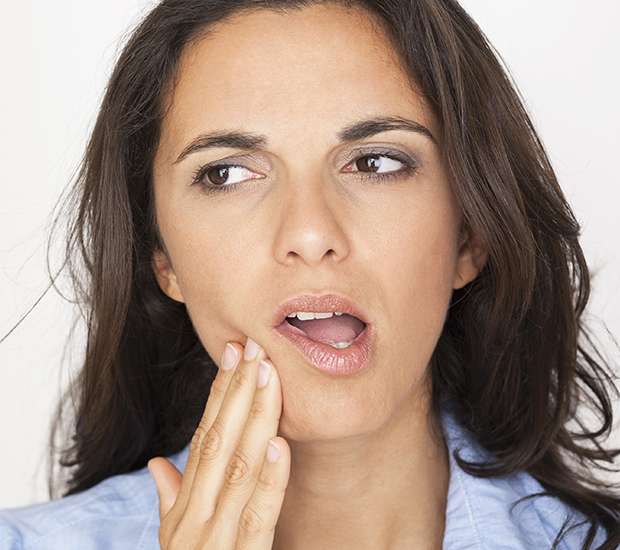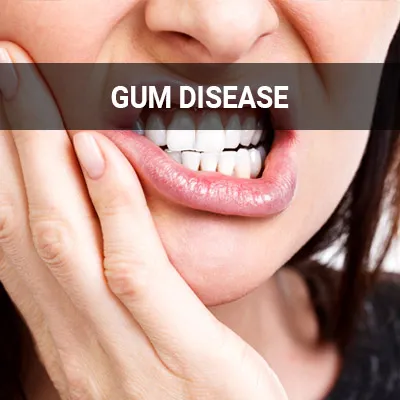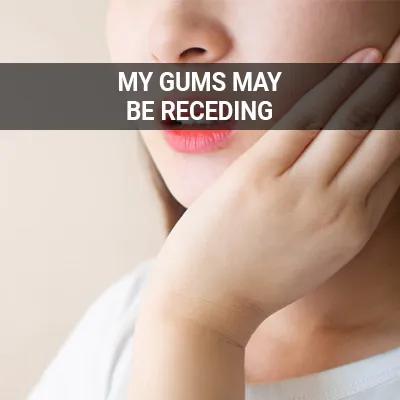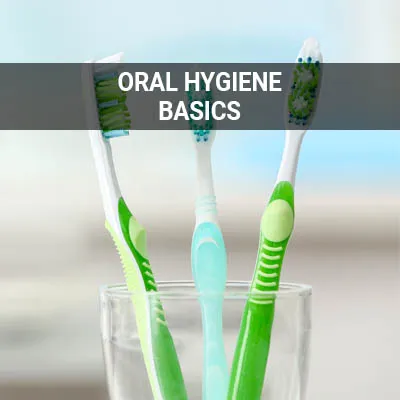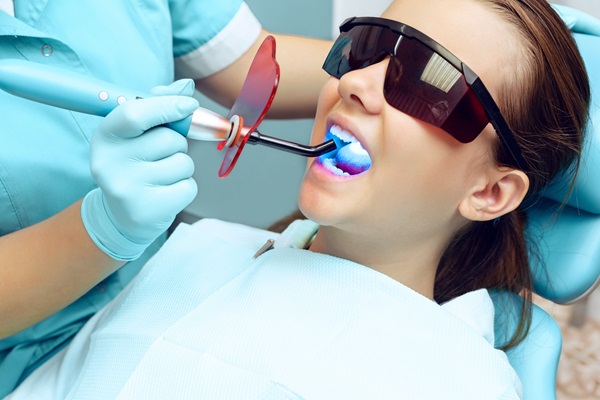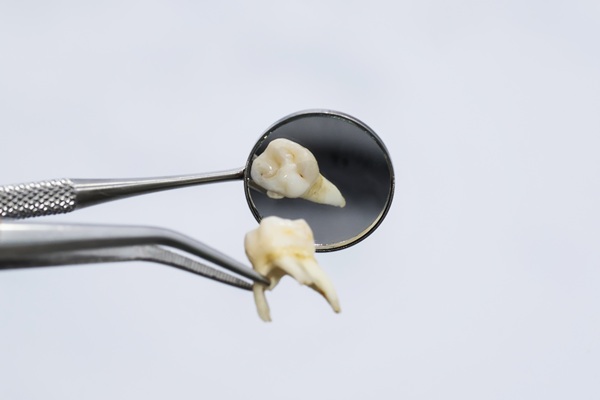Why Are My Gums Bleeding Brooklyn, NY
Oral bleeding can be an early warning sign for many dental problems. Dentists can provide the needed treatment to resolve most conditions that cause bleeding gums. Without care, however, the condition may worsen. Gum bleeding or recession can eventually lead to tooth loss.
Gum treatment is available at Nostrand Dental in Brooklyn and the surrounding area. Our team performs procedures for a wide range of gum disorders. We provide gum restoration and treatment for infection. Call us at (718) 513-9685 to learn more.
Diseases That Cause Gums to Bleed
Most forms of gum disease are caused by plaque. This sticky substance traps food and bacteria against the gum line. Over time, bacteria attack the gums, triggering inflammation and sensitivity. Without treatment, the problem can worsen. The gums may bleed while eating, brushing, or flossing. Gum problems have also been linked to heart disease and stroke.
Often, smoking and poor oral hygiene are to blame for gum disease. But some patients may be prone to gum disease even if they brush and floss daily. Pregnant women may also be at risk for cavities due to changes in behaviors, such as eating habits. Patients who wear dentures are more likely to develop gum disease too.
In rare cases, bleeding gums can be a sign of a severe condition like leukemia. Patients who notice bleeding gums should seek dental care right away. Our team can determine the source of the problem. If further tests are required, we help patients make the necessary arrangements.
“Often, smoking and poor oral hygiene are to blame for gum disease.”
Mouth Injuries
Gums may also bleed after a common mouth injury. Patients may notice bleeding after eating sharp foods or suffering a sports injury. More minor injuries may heal on their own, but severe dental bleeding can be dangerous. Seek medical care right away if you experience heavy or uncontrolled bleeding.
Taking some quick and easy precautions can help prevent dental injuries. For example, wearing a mouthguard protects the teeth and gums while playing sports. Avoid sharp foods like chips and hard candies, and never use the teeth to cut or tear objects. Keep appliances like dentures and retainers in good shape, too. Wearing a damaged or ill-fitting appliance can result in a serious mouth injury. If your device no longer fits, contact our dental team. We can provide a replacement.
“Taking some quick and easy precautions can help prevent dental injuries.”
Other Causes of Oral Bleeding
Bleeding gums can develop due to lifestyle factors like poor diet. In addition, nutritional deficiencies like scurvy sometimes trigger bleeding disorders. Without treatment, these deficiencies can put the patient's life at risk.
Smoking is a known risk factor for gingivitis and oral cancer. Consequently, patients who use nicotine, including e-cigarettes or chewing tobacco, are at risk for gum problems. Nicotine damages gum tissue and triggers inflammation. A dentist can provide more information about smoking cessation programs.
Sometimes, pregnancy triggers unexplained dental problems. For example, pregnant patients may develop bleeding gums, even if they have no other risk factors for gum disease. Patients who develop bleeding gums while pregnant should seek guidance right away. A dentist can provide treatment and keep the problem from worsening.
“Smoking is a known risk factor for gingivitis and oral cancer.”
Check out what others are saying about our dental services on Yelp: Why Are My Gums Bleeding in Brooklyn, NY
Treating Bleeding Gums
Proper oral hygiene reduces the risk of gum disease. Patients can protect their gums by:
- Brushing twice daily
- Flossing twice daily
- Avoiding sugary, sticky foods
- Rinsing the mouth after each meal
- Sipping plain water throughout the day
Regular dental care helps, as well. Patients should schedule checkups and cleanings at least twice a year. During each biannual cleaning, the dental team removes plaque and tartar. These sticky substances can trap bacteria at the gumline. As a result, patients who skip dental cleanings may develop plaque buildup. This condition increases the patient's lifetime risk of gum disease.
In some cases, patients may need further care for their bleeding gums. Many in-office dental procedures eliminate infection and restore healthy gum tissue. Our dental team can help patients choose the right procedure.
“Patients who skip dental cleanings may develop plaque buildup.”
Questions Answered on This Page
Q. How can I prevent mouth injuries?
Q. What are some other causes of oral bleeding?
Q. How are bleeding gums treated?
Q. How can I prevent or treat bleeding gums at home?
People Also Ask
Q. Am I at high risk for developing oral cancer?
Oral Hygiene for Bleeding Gums
Most Americans fail to brush twice a day, and proper brushing can be a challenge. In addition, patients are not always informed about brushing tips and techniques. Keep in mind that adults and children should brush for two minutes, twice a day.
Choose a soft-bristled brush. Then work in a circular pattern, focusing on the gums. Avoid scrubbing at the teeth or applying forceful pressure. If possible, opt for a toothpaste designed for people with sensitive teeth and gums.
Flossing is also an essential part of oral hygiene. Choose a waxed floss, and try to work around the curved sides of each tooth. Gently rock the floss back and forth to dislodge food particles and remove tartar. Afterward, rinse the mouth thoroughly.
Patients with bleeding gums should avoid using floss picks. These picks can have rigid sides, which may irritate sensitive gums. Try to avoid toothpicks or other sharp objects, too. Picking at the gums can worsen bleeding.
“Keep in mind that adults and children should brush for two minutes, twice a day.”
Frequently Asked Questions
Q. What causes bleeding gums?
A. Bleeding gums are usually a sign of gingivitis. This common condition causes inflammation and tenderness along the gumline. Patients with gingivitis need prompt treatment. Untreated gingivitis may put patients at risk for tooth or jawbone loss.
Q. Are bleeding gums a sign of cancer?
A. Gum bleeding is often a sign of infection or poor oral hygiene. Sometimes, however, bleeding gums can be a symptom of leukemia. Patients with bleeding gums should always seek an immediate evaluation. A dentist can determine the cause of the patient's symptoms and provide treatment.
Q. Does smoking cause bleeding gums?
A. People who smoke are at high risk for gum disease, tooth loss, and other dental problems. Many smokers also develop bleeding gums. Contrary to popular belief, e-cigarettes are not a safer option. E-cigs can also damage the teeth and gums. Patients who smoke may want to consider a smoking cessation program.
Q. Can pregnancy cause bleeding gums?
A. Many people develop bleeding gums during pregnancy. These symptoms are usually temporary and rarely cause serious health problems. Regardless, it is important to seek treatment right away. A dentist can stop the bleeding and treat any underlying gum disorders.
Q. How are bleeding gums treated?
A. The dentist may begin with a thorough cleaning. First, they remove any plaque or tartar. Next, they provide an antiseptic rinse. The dentist may also provide take-home products to help the patient's gums heal. Sometimes, the patient may need a scaling and planing procedure or other in-office treatments. Our dental team can provide more information about these procedures.
Periodontic Terminology
Call Us Today
If you notice bleeding gums, notify your dentist immediately. Bleeding can be a sign of gum disease. Without treatment, your symptoms may worsen. Receding gums can lead to tooth loss and other dental problems.
Do not let gum disease destroy your oral health. Let Nostrand Dental in Brooklyn provide the care you need. Call us at 718-513-9685 to schedule an appointment with a qualified dentist.
Helpful Related Links
- American Dental Association (ADA). Glossary of Dental Clinical Terms. 2024
- American Academy of Cosmetic Dentistry® (AACD). Home Page. 2024
- WebMD. WebMD’s Oral Care Guide. 2024
About our business, license, and website security
- Nostrand Dental was established in 1998.
- We accept the following payment methods: Cash, CareCredit, Check, Discover, MasterCard, and Visa
- We serve patients from the following counties: Kings County, New York County, Richmond County, Queens County, and Nassau County
- We serve patients from the following cities: Brooklyn, Manhattan, Queens, Staten Island, and Long Island
- NY (License #46702). View License Information and Specifics
- National Provider Identifier Database (1457434540). View NPI Registry Information
- Norton Safe Web. View Details
- Trend Micro Site Safety Center. View Details
Back to top of Why Are My Gums Bleeding
